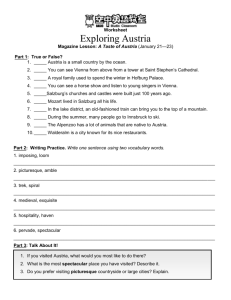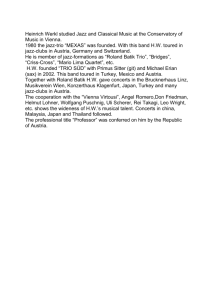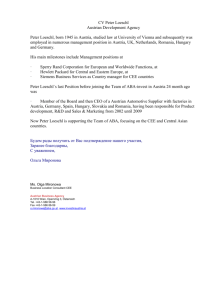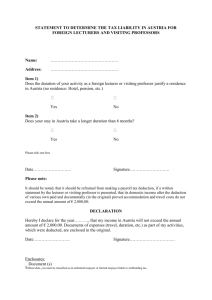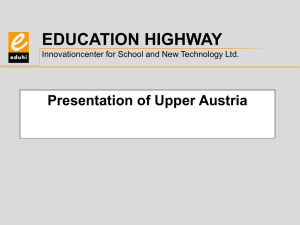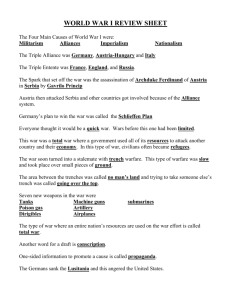Top tips for Austria
advertisement
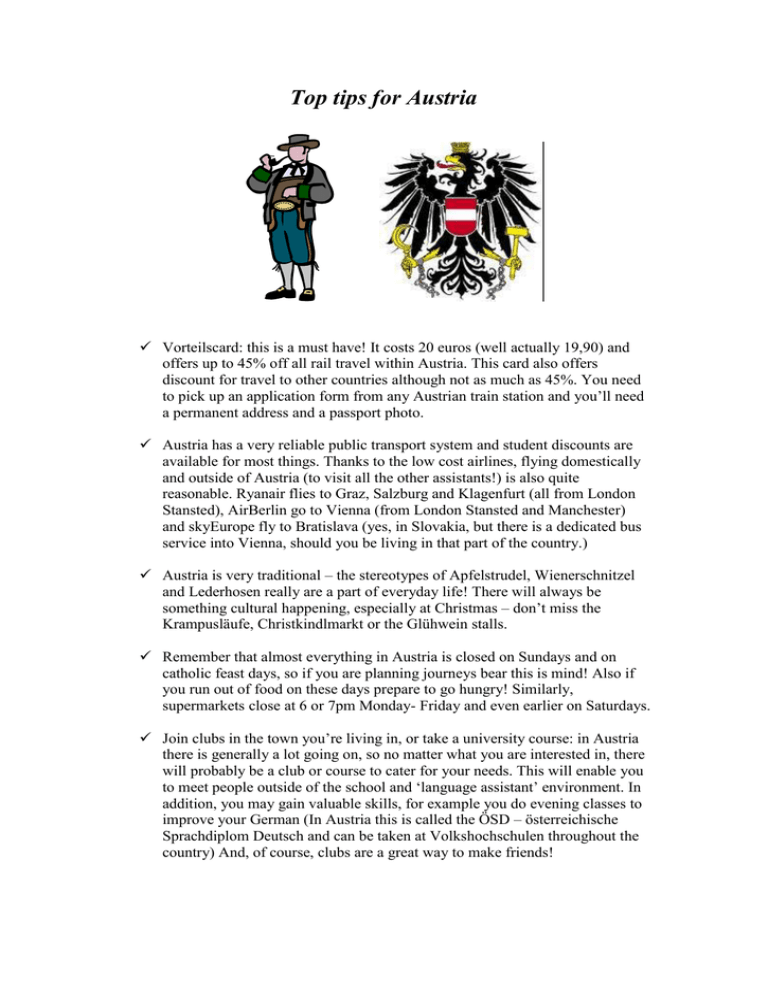
Top tips for Austria Vorteilscard: this is a must have! It costs 20 euros (well actually 19,90) and offers up to 45% off all rail travel within Austria. This card also offers discount for travel to other countries although not as much as 45%. You need to pick up an application form from any Austrian train station and you’ll need a permanent address and a passport photo. Austria has a very reliable public transport system and student discounts are available for most things. Thanks to the low cost airlines, flying domestically and outside of Austria (to visit all the other assistants!) is also quite reasonable. Ryanair flies to Graz, Salzburg and Klagenfurt (all from London Stansted), AirBerlin go to Vienna (from London Stansted and Manchester) and skyEurope fly to Bratislava (yes, in Slovakia, but there is a dedicated bus service into Vienna, should you be living in that part of the country.) Austria is very traditional – the stereotypes of Apfelstrudel, Wienerschnitzel and Lederhosen really are a part of everyday life! There will always be something cultural happening, especially at Christmas – don’t miss the Krampusläufe, Christkindlmarkt or the Glühwein stalls. Remember that almost everything in Austria is closed on Sundays and on catholic feast days, so if you are planning journeys bear this is mind! Also if you run out of food on these days prepare to go hungry! Similarly, supermarkets close at 6 or 7pm Monday- Friday and even earlier on Saturdays. Join clubs in the town you’re living in, or take a university course: in Austria there is generally a lot going on, so no matter what you are interested in, there will probably be a club or course to cater for your needs. This will enable you to meet people outside of the school and ‘language assistant’ environment. In addition, you may gain valuable skills, for example you do evening classes to improve your German (In Austria this is called the ÖSD – österreichische Sprachdiplom Deutsch and can be taken at Volkshochschulen throughout the country) And, of course, clubs are a great way to make friends! Language assistants in Austria teach 15 hours a week, not 12 as in Germany. But you’re also paid a bit more! You will take part in a training week at the very beginning of the year, either in Hollabrunn or Zell am See, dependant upon where in Austria you are going to be living and working. This is a great opportunity to meet other people who will be in the same area as you and you’ll gain tips for teaching, too. Nachhilfe, giving extra English lessons, is a great way of earning extra money. As a native speaker you will probably be approached to do this. As for mobile phones, there are lots of networks, just like in the UK. A1is expensive, Telering is one of the cheapest, and there’s also T-Mobile. If you can afford it, buy a mobile or an Austrian SIM card – it’ll help you keep in touch with your friends! Another aspect that is often a worry about going to Austria is that you might not understand the German and that you’ll struggle. At first, yes, it is hard to tune your ears into ‘österreichisch’, but most people manage this easily enough without any major problems. As with anywhere, it is just a case getting used to your surroundings and the local accent. Austrian German does contain some words that are different from Hochdeutsch, but they mainly revolve around food and perhaps greetings, so you should get used to it fairly quickly. With an open mind, and being prepared to adapt to your new surroundings there’s very little problem! Lastly, remember to enjoy it! Austria is a beautiful country – use your new found freedom and more importantly your wages to discover it.
